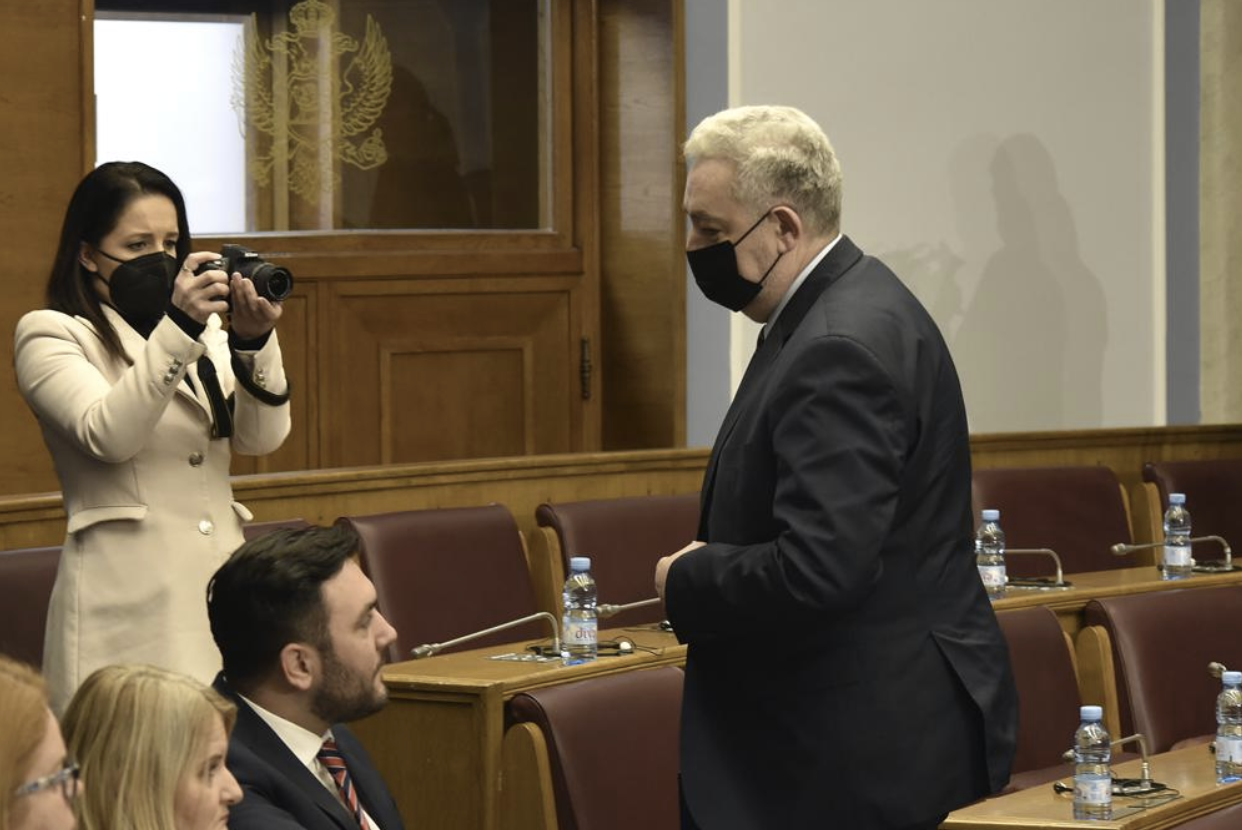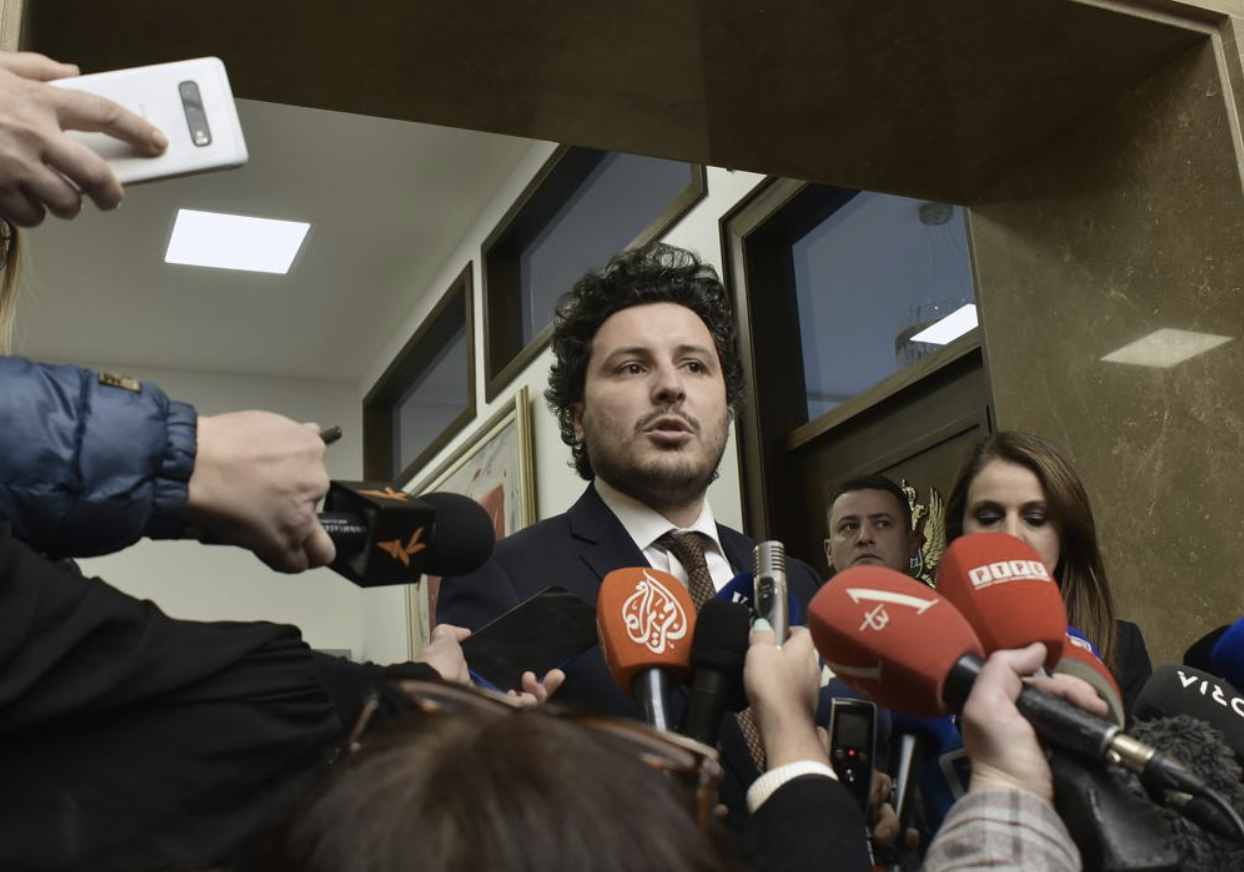Montenegrin Government in Chaos after Ruling Coalition Collapses
Montenegrin Prime Minister Zdravko Krivokapic leaving a parliament session in Podgorica, Montenegro, Friday, February 4, 2022. Photo: Associated Press/ Risto Bozovic
On Feb. 7, the smallest bloc in the current ruling coalition, Black on White, along with many opposition parliament members sacked Aleksa Becic, the parliament speaker and bloc leader of Peace is Our Nation. These same MPs also toppled the ruling coalition with a no-confidence vote three days prior on Feb. 4. The sacking and vote of no-confidence were not welcomed by the other two blocs of the ruling coalition, Peace is Our Nation and For the Future of Montenegro, who called for protests in response.
The 81 member parliament voted 43 to 11 in favor of ousting conservative Prime Minister Zdravko Krivokapic's government on Feb. 4, with many MPs voting absent or leaving before the vote took place. The ruling coalition that Krivokapic has led for a little over a year contained a few pro-Serbian parties as well as other parties unhappy with the lack of progress in achieving European Union accession.
The members of the coalition were at odds with one another over issues including the influence exerted by the current Serbian government and the Serbian church into Montenegrin politics. In addition, the coalition and Montenegrins as a whole are extremely divided over the decision between strengthening its relations with its neighbor Serbia and allying with Russia, or joining the European Union.
The bloc had previously won 41 out of 81 seats in parliament to form a new government ousting the long-ruling Democratic Party of Socialists (DPS). This was the first democratic shift to ever occur in Montenegro, as the DPS ruled the small western Balkan nation for 30 years prior to the election in August 2020. Current President Milo Djukanovic and leader of the DPS facilitated the nation's independence from Serbia in 2006 and its admission into NATO in 2017. The party rapidly lost popularity leading up to the legislative election due to allegations of corruption and ties to organized crime.
Montenegro's Deputy Prime Minister Dritan Abazovic speaks to the media in Podgorica, Montenegro, Friday, February 4, 2022. Photo: Associated Press/ Risto Bozovic
Dritan Abazovic, the Deputy Prime Minister and current leader of the center-left United Reform Action and Black on White bloc, is expected to be named Prime Minister-designate. Abazovic aims to lead a minority government that contains minority parties such as SNP, a moderate pro-Serbian party. The DPS will not participate in the new government but will support it.
In addition to the DPS, opposition parties including the conservative Bosniak Party (BS), the center-left Social Democratic Party (SDP) and Social Democrats (SD), and two ethnic Albanian coalitions have already announced their support for a minority government.
Although the DPS will not be directly a member of the government, the support of the minority party will greatly rely on opposition MPs for the new minority government to stand.
Zlatko Vujovic, head of the Centre for Monitoring and Research, CEMI, said that “it’s expected that new minority government will prepare the country for early elections within a year and implement judicial reforms. But Djukanovic’s party will try to influence the new government and their support will not be unconditional, despite the fact their officials will not be part of the new PM’s cabinet.”
The DPS would most likely block legislation that would investigate allegations of corruption against members that held power during the party's 30-year rule.
Peace is Our Nation and For the Future of Montenegro blocs, ministers from Krivokapic's government, and organizations close to the Serbian Orthodox Church are staunchly against any new government being elected with the support of Djukanovic and the DPS. All members have called for a government in which they will remain active participants. This call comes with support from the Serbian Orthodox Church as they requested to preserve the previous election victory and to not make any agreements with the DPS. These groups have started to organize protests in several cities across Montenegro against Abazovic and his Black on White bloc.
On Feb. 8, Krivokapic warned against a new government as it would effectively transfer power back to the DPS and called for early parliamentary elections. In spite of this, Abazovic and the Black on White bloc are likely to form a new government on Feb. 11, completely ousting Krivokapic's government. Along with this, many polls have stated that if elections were to be held, most of the political parties in Montenegro would lose seats, including the DPS.
However, the recent political upheaval in Montenegro will most likely continue to slow down the nation's progress on reforms with the end goal of joining the EU.


